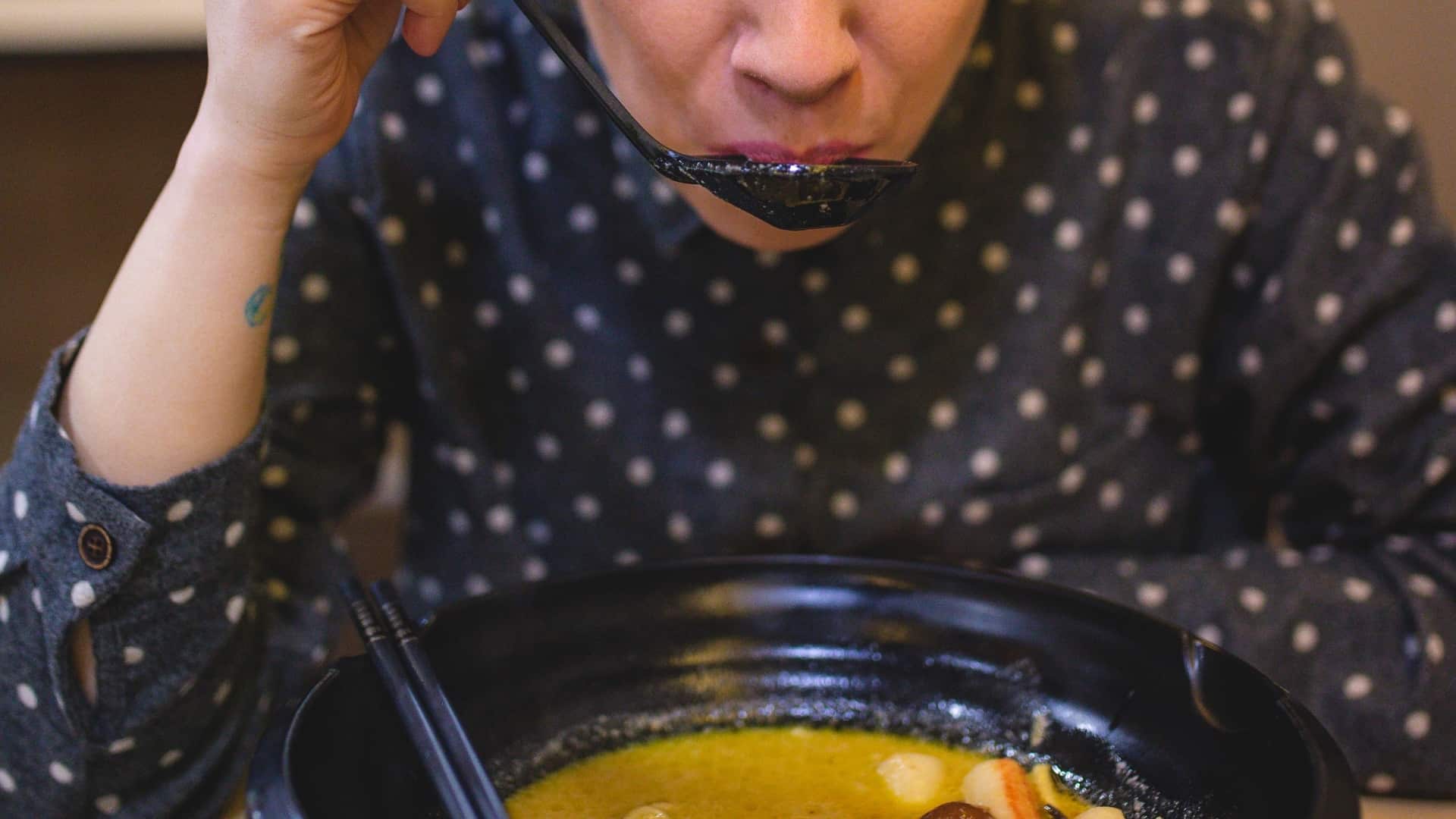My ramen smells like ammonia: why is that & is it safe to eat?
You go to your favorite noodle restaurant and you order the ramen. But as the food arrives, you can immediately tell that something’s wrong.
Your big bowl of ramen noodles smells very distinctly like ammonia, which is certainly not something you want your food to smell like!
This is rare, but if this happens to you, you’ll likely want to know what happened and why.


Check out our new cookbook
Bitemybun's family recipes with complete meal planner and recipe guide.
Try it out for free with Kindle Unlimited:
Read for freeWhy does my ramen smell like ammonia?
The reason for this smell is that certain types of ramen noodles, specifically the ones used by Chinese noodle restaurants, have alkali water in them as an ingredient. Alkali water helps with the texture of the noodles, but there’s one main issue.
If the water used to boil and cook the noodles isn’t changed regularly, it concentrates the alkali. This is where the ammonia smell comes from!
Also read: can you make instant ramen noodles with cold water?
That sounds disgusting! Is this a bad thing?
Well, that depends on your definition of bad. Likely, the ramen is still safe to eat if that’s what you’re concerned about at the time.
However, it’s bad for the dish. After all, who wants to eat something that smells awful?
If you’re going to spend money to eat somewhere, you want the food to be pleasant. Not to mention, it’s also bad for a restaurant’s reputation to have ramen that smells like ammonia.
Check out this video by YouTuber Extraordinary Genes to learn more about smelly ramen:
Are there any noodles I can ask for to avoid this?
Not really.
Since the reason for ramen smelling like ammonia is because of the boiling water being mishandled in the kitchen, there isn’t much you can do about this as a customer. Only restaurants that use certain kinds of Chinese egg noodles will have this potential issue.
If the ramen that you eat uses Japanese noodles, then ramen with an ammonia odor isn’t something you’re likely to experience.
If you still want your ramen to use egg noodles, there’s another option to avoid having a meal that reeks of ammonia. Since it’s unlikely that you’re cooking a large amount of ramen around the clock at your house, you can just make your ramen at home. Unless you’re cooking for dozens of people, you probably won’t end up in a situation where you aren’t changing the water frequently enough.
Check out our new cookbook
Bitemybun's family recipes with complete meal planner and recipe guide.
Try it out for free with Kindle Unlimited:
Read for freeJoost Nusselder, the founder of Bite My Bun is a content marketer, dad and loves trying out new food with Japanese food at the heart of his passion, and together with his team he's been creating in-depth blog articles since 2016 to help loyal readers with recipes and cooking tips.
